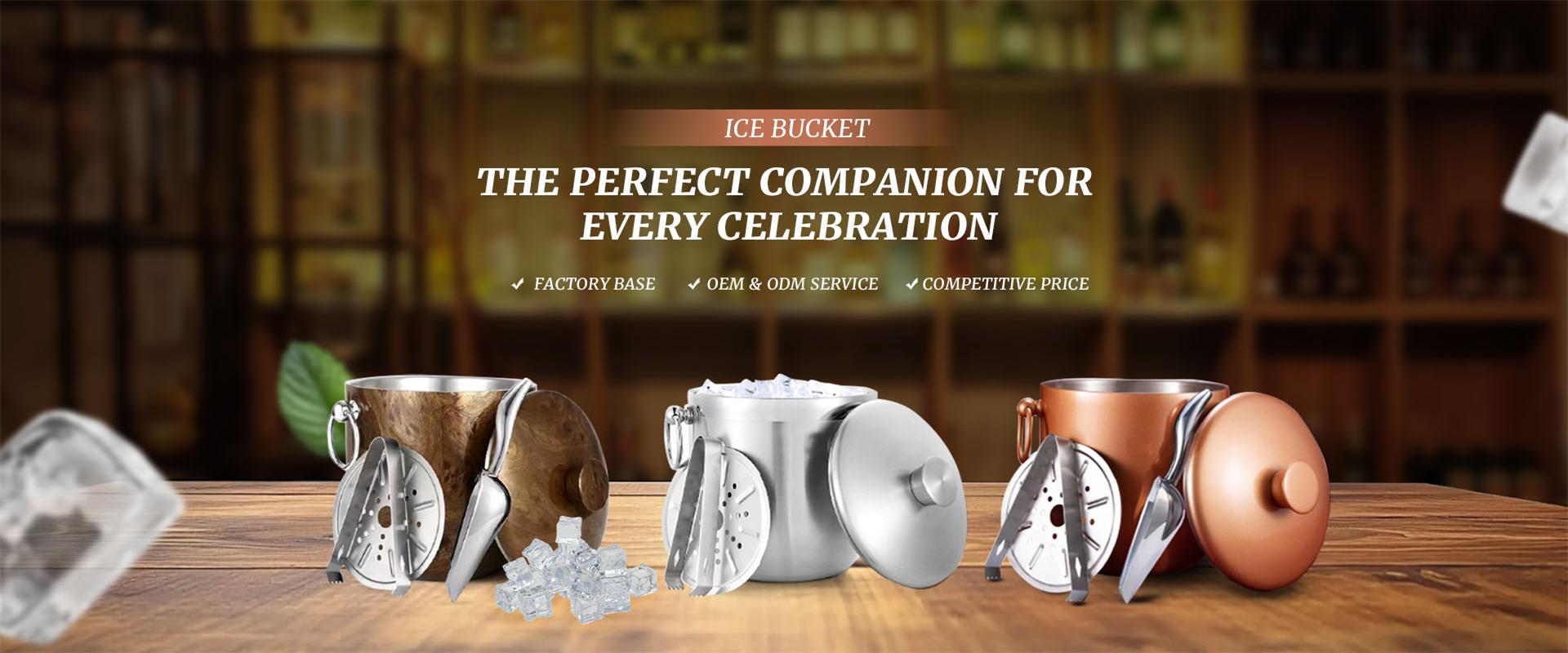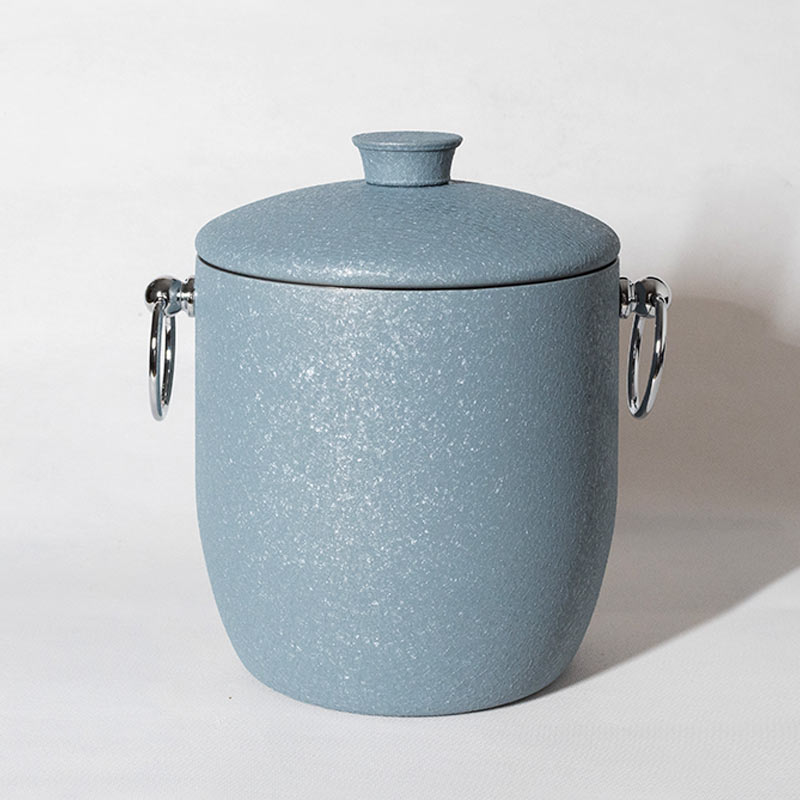How To Keep Ice From Melting in An Ice Bucket
Keeping ice solid for as long as possible is both an art and a science. Whether you’re hosting an outdoor party, chilling beverages at a restaurant, or setting up a home bar, preventing ice from melting too quickly ensures a consistent cold temperature and saves you from frequent refills. Below are detailed, practical methods to help you keep ice from melting in your Ice Bucket efficiently.
1. Choose the right ice bucket Material
The material of your ice bucket plays a critical role in insulation. Some materials retain cold better than others.
| Material | Insulation Quality | Description |
|---|---|---|
| Stainless Steel (Double-Walled) | ★★★★★ | Excellent at retaining cold air inside and blocking heat transfer from outside. |
| Plastic or Acrylic | ★★★ | Lightweight but less efficient at maintaining temperature. |
| Glass | ★★ | Looks elegant but conducts heat faster, leading to quicker melting. |
| Wood or Cork-Lined | ★★★★ | Natural insulator; good for decorative and functional use. |
Tip: Always choose a double-walled or vacuum-insulated stainless steel ice bucket for the best performance. It creates an air barrier that reduces heat conduction and prolongs ice retention.
2. Pre-Chill the Ice Bucket Before Use
One of the simplest yet most overlooked tricks is pre-chilling your bucket.
Before filling it with ice, do the following:
Fill the bucket with cold water or ice and let it sit for 5–10 minutes.
Drain the water completely before adding fresh ice.
This process cools down the inner walls, so when you add ice, it won’t start melting immediately due to contact with a warm surface.
3. Use Large Ice Cubes or Blocks
Not all ice melts at the same rate. Smaller cubes have more surface area, which means they melt faster. To slow melting:
Use large ice cubes or solid ice blocks instead of crushed ice.
Consider using ice molds to create oversized cubes for longer-lasting chill.
If you’re keeping bottled drinks, add one large block at the bottom and smaller cubes on top to maintain cold temperature evenly.
4. Add Salt—But Use It Strategically
Adding salt to ice lowers the freezing point of water, which helps create a colder mixture. However, this also causes faster melting if not used correctly. The trick is to use salt only when you want to super-chill drinks quickly, not for long-term storage.
For ice longevity:
Avoid salt unless rapid cooling is needed.
If used, mix salt evenly with water before adding ice to avoid over-melting.
5. Keep the Ice Covered
Exposure to air accelerates melting because warm air transfers heat to the ice. Always keep your ice bucket covered with a fitted lid or insulated cap.
If your bucket doesn’t have a lid:
Use a clean towel or plastic wrap as a temporary cover.
Place the bucket in a shaded or indoor area, away from direct sunlight or heat sources.
6. Use Dry Ice for Extended Cooling
When you need ice to last several hours, adding a small amount of dry ice underneath regular ice can be highly effective. Dry ice sublimates (turns into gas) instead of melting, helping maintain extremely low temperatures.
Safety Tips:
Always handle dry ice with gloves.
Never seal it tightly in an airtight container, as gas buildup can cause pressure.
This method is especially useful for outdoor parties, catering events, or extended buffet setups.
7. Keep the Bucket Out of Heat Exposure
The placement of your bucket greatly affects how long your ice lasts.
For optimal results:
Place it in the shade, away from sunlight or warm equipment.
Avoid putting it near kitchen appliances or bar lighting that generate heat.
If outdoors, wrap the bucket with a towel or insulated sleeve for extra protection.
8. Use Insulating Layers Inside the Bucket
You can increase insulation by layering materials inside or around your ice.
Try the following:
Line the interior with aluminum foil to reflect heat.
Add a plastic liner or foam sheet between ice and bucket walls.
Wrap ice cubes in a thin plastic bag before placing them inside; this slows melting and makes cleanup easier.
9. Drain Melted Water Regularly
Melted water increases the temperature inside the bucket and accelerates ice melting. To keep ice colder:
Drain excess water every 30–60 minutes.
If your bucket has a built-in drain plug, open it occasionally to let warm water escape.
Alternatively, place a strainer insert inside so ice doesn’t sit in its own meltwater.
10. Use Cold Drinks Instead of Room-Temperature Ones
When you place warm bottles or cans into the ice bucket, the ice melts quickly to cool them.
Instead:
Pre-chill beverages in the refrigerator before adding them to the ice bucket.
The colder the drinks are beforehand, the longer your ice will last.
11. Combine with Ice Packs or Gel Packs
Reusable ice packs are great companions for real ice. They help stabilize the temperature while minimizing meltwater.
Place a few gel ice packs around or under your ice cubes.
These packs can be re-frozen after use, making them an eco-friendly alternative to excessive ice use.
12. How Long Can Ice Last in an Insulated Bucket?
The lifespan of ice in an ice bucket depends on several factors such as insulation, ambient temperature, and ice type.
| Bucket Type | Typical Ice Retention Time |
|---|---|
| Single-Wall Metal Bucket | 1–2 hours |
| Double-Wall Stainless Steel Bucket | 4–6 hours |
| Vacuum-Insulated Bucket | 6–10 hours |
| Bucket with Dry Ice Layer | Up to 12 hours |
A double-wall insulated design—like those found in high-end stainless steel buckets—is the best balance between function and style.
13. Bonus: Eco-Friendly Cooling Tips
If you host events frequently, consider ways to reduce ice waste:
Reuse meltwater for cleaning or watering plants.
Use reusable ice cubes made of stainless steel or gel-filled plastic.
Choose energy-efficient cooling accessories instead of disposable ones.
These small adjustments reduce water waste and make your hosting more sustainable.
Conclusion
To keep ice from melting quickly in your ice bucket:
Use a double-walled stainless steel bucket.
Pre-chill it before adding ice.
Keep it covered and shaded.
Drain meltwater regularly and use large ice cubes for slower melting.
By following these techniques, you’ll enjoy longer-lasting ice and perfectly chilled drinks for any occasion.
Previous: What Can I Use for An Ice Bucket




